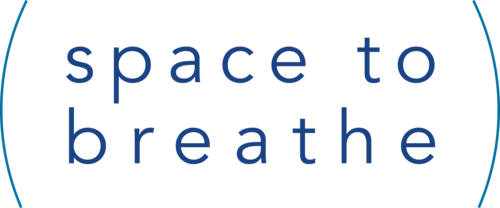When the Covid-19 situation began to become serious around the world, the challenges and changes have presented millions of people with life circumstances they’d never expected or faced.
Personally, the current crisis has challenged my business world, my family world and my future. It's also asked me fundamental questions about my wellbeing.
For about 10 years now, I’ve struggled on-and-off with Anxiety. On the whole it’s a situation thats under control and I have good coping mechanisms and have worked hard on my self-care. Anxious moments come but they don’t stay like they used to.
But when Coronavirus happened I had to change my approach. I always used to ask myself questions to help my anxiety, one of them was this …
Whats the worst thing that could happen?
I asked myself that question because often I over-worried. When I pondered the worst that could happen I’d often be reassured that actually the worst wasn’t that bad, was manageable and I’d be ok.
But in our current crisis, this question hasn’t been so helpful and in the end I’ve had to change it. The worst - for my health, for my family, for my working life, for my friends and community … I’d don’t really want to go there.
And this got me thinking. In my efforts to work at my own anxiety had I forgotten how to deal with the very worst? Had I allowed too much positivity to be my solution to life’s challenges rather than taking a good hard look at a life that is often difficult, where suffering is just part of the journey? Had my positivity become a little too toxic - was it happy no matter what or did my wellbeing view have space for the difficult, the challenging and the painful?
This led me to resilience.
Here at Space to Breathe we’ve worked hard to talk about wellbeing in a way that’s both hopeful and realistic.
We believe hope is a crucial factor in wellbeing. Hope provides us with the energy to face the day, to find purpose or vocation, to see the future and contemplate that it will be good, will be better.
But this hope is weakened if we’re not also realistic. Hope needs to realise that life is real, it is often hard and that tough times do come. Hope is not destroyed by these things, actually is often deepened and kindled by it. But hope needs to be realistic or it is not hope at all.
On my street there’s lots of chalk pictures and writing as you walk along it. Its lovely. One said “everything will be ok.”
I love the sentiment of that sentence. I admire the hopefulness and courage. But it’s important we realise it might not be. Everything might not be ok and for many of us, everything already isn’t ok.
I don’t believe this is the time to diagnose our current or future state, what lessons we learn etc. That will come later. But I can see already that we have all become much more familiar with our fragility. Human beings do die. Bad things do happen. But hope survives …
Being realistic, being hopeful
Both pessimists and optimists see the same things. In their brilliant book “Resilience: The Science of Mastering Life’s Greatest Challenges” Southwick and Charney make this same point.
“Like pessimists, realistic optimists pay close attention to negative information that is relevant to the problems they face. However, unlike pessimists, they do not remain focussed on the negative.”
Being hopeful and being real means we see the same things that others see. We don’t look away from the difficult or the troubling. Instead we stare it in the face. We look at our fears. We accept that the worst might happen and we take time to understand it. We confront the difficult and the challenging, saying this is part of life. Then we seek to be hopeful.
Hope isn’t a fluffy “good vibes only” thing. Hope is kindled in the most extreme and difficult times by people and communities that refuse to remain focused on the negative. They accept, confront and look forward.
Anne Frank is an incredible example. Locked in an attic room, hiding from Nazi forces in Amsterdam, confronted by the worst kind of evil - yet her journals are filled with hope.
“It's really a wonder that I haven't dropped all my ideals, because they seem so absurd and impossible to carry out. Yet I keep them, because in spite of everything, I still believe that people are really good at heart.”
Anne Frank ‘Diary of a Young Girl
My new question
So instead of “what’s the worst that can happen” I have a new question that’s begun to help me. It asks “how can I hope?” In the reality of the situations infront of me how and where can I choose to be hopeful? What are the things infront of me, infront of my kids? What are the hopeful things in my working life?
This question feels important to my resilience. Its realistic and hopeful. So far it’s helping.
Article by Andy Freeman, the founder of Space to Breathe. You can chat with Andy via Twitter @AndyFMusings


